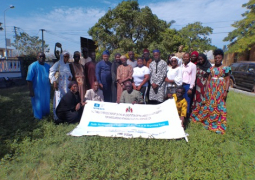
DG Bah revealed that the FSQA has successfully developed and gazetted a range of critical food safety regulations over the years. These include standards for rice, maize, groundnut, alcohol, cashew packaging, and the labelling of pre-packaged foods. He also highlighted the landmark Food Fortification and Licensing Regulations introduced in 2020.
“The Authority has issued comprehensive guidelines to support food businesses,” Bah stated. “These cover warehouse storage, animal feed import and export, startup operations, and traceability and recall procedures.”
The guidelines include: Guidelines for Food Retail Establishments, Guidelines for Food Service Establishments, Guidelines for Food Storage Warehouses, Traceability Guidelines, Food Withdrawal and Recall Procedures, Guidelines on Developing and Implementing Prerequisite Programmes, and Guidelines for Startup Food and Feeding Businesses
DG Bah also announced that FSQA has signed eight Memoranda of Understanding (MoUs) with both local and international partners to enhance collaboration and technical support.
In a bid to support small and medium-sized enterprises (SMEs), Bah noted that the Authority continues to offer tailored assistance to small-scale food processors, agri-food businesses, and startups. These include low registration fees, coaching on Good Hygiene Practices (GHP) and Hazard Analysis and Critical Control Points (HACCP), certification support, and improved market access.
As the roundtable concluded, DG Bah expressed optimism about The Gambia’s food safety trajectory, citing growing institutional capacity and stakeholder engagement.





